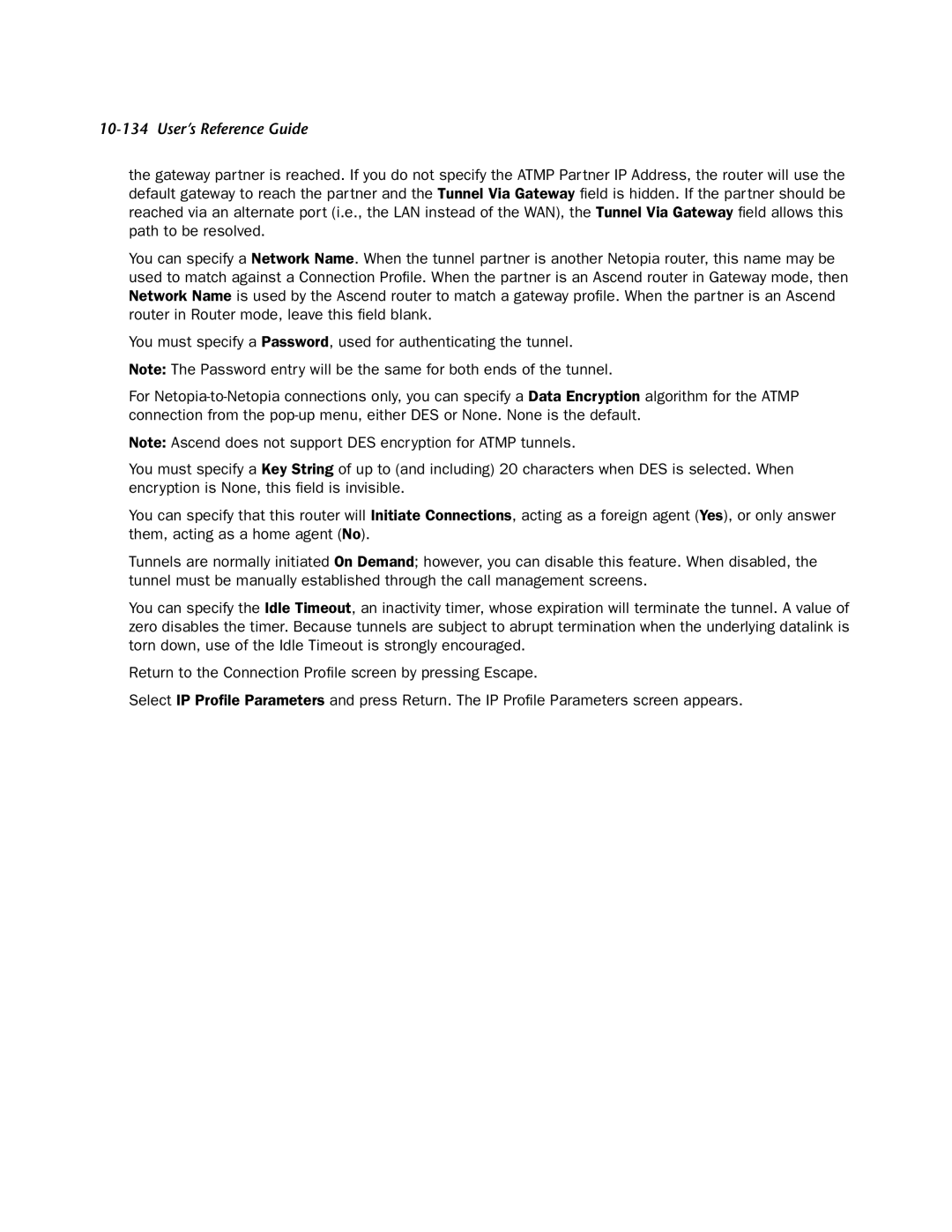10-134 User’s Reference Guide
the gateway partner is reached. If you do not specify the ATMP Partner IP Address, the router will use the default gateway to reach the partner and the Tunnel Via Gateway field is hidden. If the partner should be reached via an alternate port (i.e., the LAN instead of the WAN), the Tunnel Via Gateway field allows this path to be resolved.
■You can specify a Network Name. When the tunnel partner is another Netopia router, this name may be used to match against a Connection Profile. When the partner is an Ascend router in Gateway mode, then Network Name is used by the Ascend router to match a gateway profile. When the partner is an Ascend router in Router mode, leave this field blank.
■You must specify a Password, used for authenticating the tunnel.
Note: The Password entry will be the same for both ends of the tunnel.
■For
Note: Ascend does not support DES encryption for ATMP tunnels.
■You must specify a Key String of up to (and including) 20 characters when DES is selected. When encryption is None, this field is invisible.
■You can specify that this router will Initiate Connections, acting as a foreign agent (Yes), or only answer them, acting as a home agent (No).
■Tunnels are normally initiated On Demand; however, you can disable this feature. When disabled, the tunnel must be manually established through the call management screens.
■You can specify the Idle Timeout, an inactivity timer, whose expiration will terminate the tunnel. A value of zero disables the timer. Because tunnels are subject to abrupt termination when the underlying datalink is torn down, use of the Idle Timeout is strongly encouraged.
■
■
Return to the Connection Profile screen by pressing Escape.
Select IP Profile Parameters and press Return. The IP Profile Parameters screen appears.
